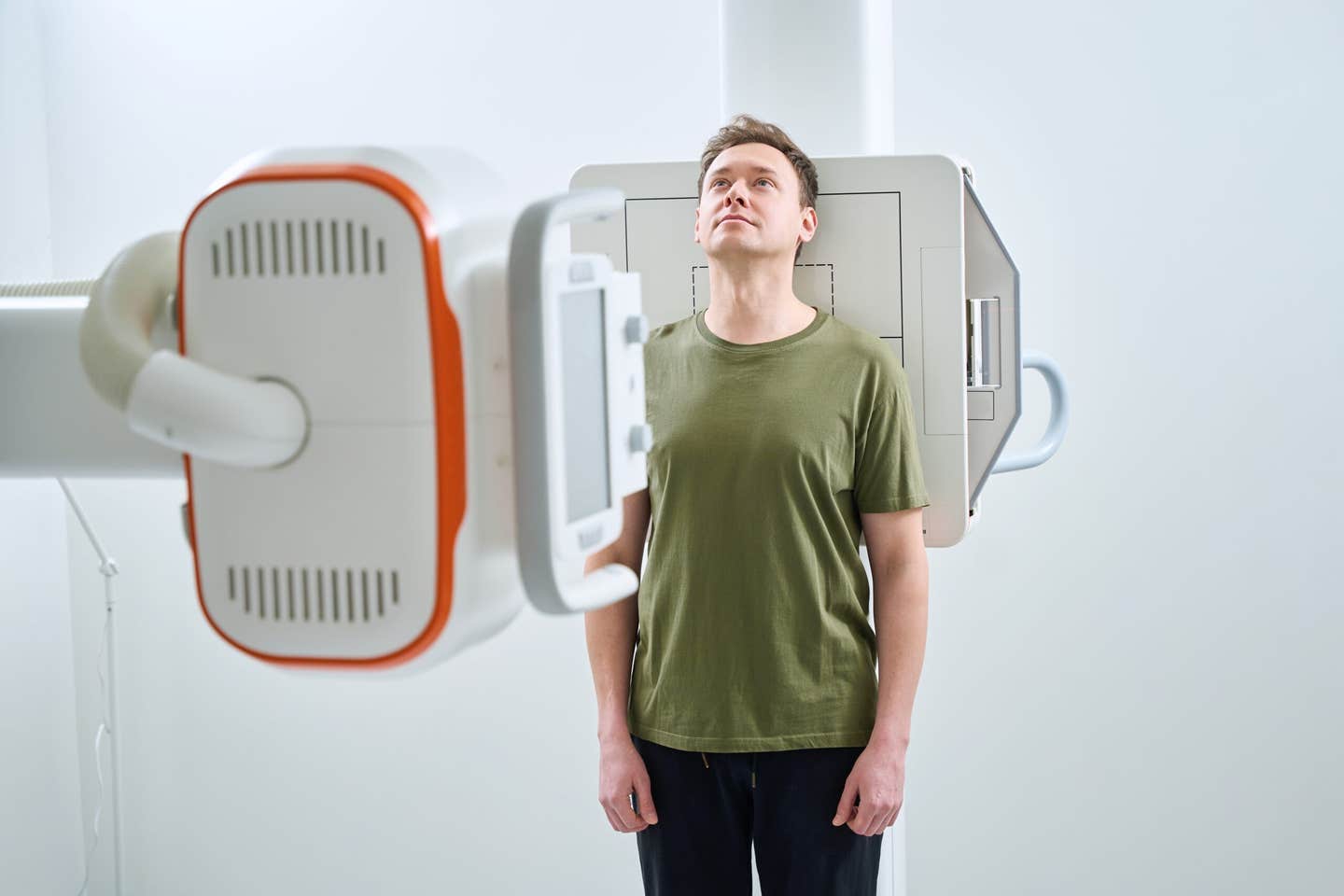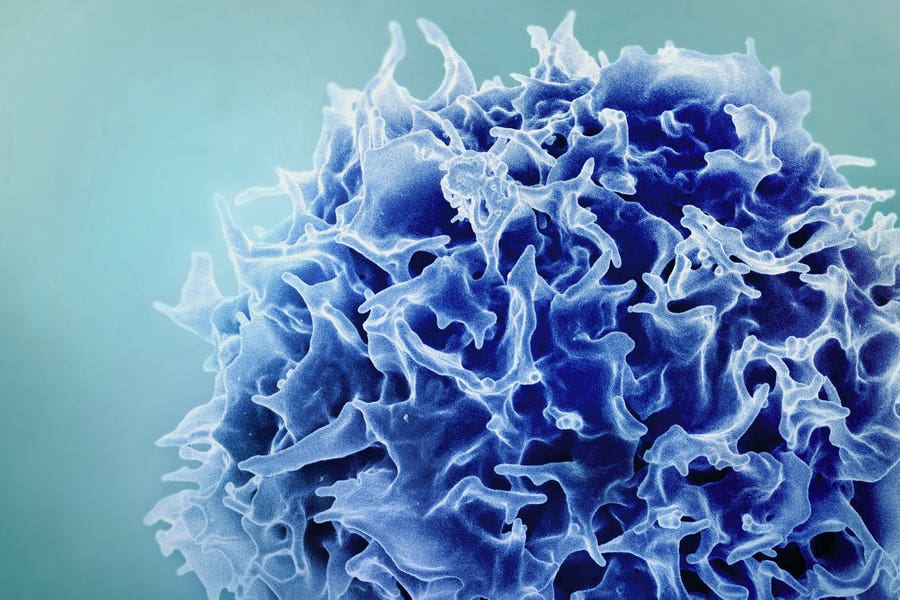Scientific breakthrough could revolutionize the treatment of prostate cancer
Researchers have identified a receptor protein known as CHRM1 as a pivotal factor in the resistance of prostate cancer cells

The 'game-changing' treatment uses electrical currents to destroy difficult to reach tumors. (CREDIT: Creative Commons)
In a groundbreaking discovery, researchers have identified a receptor protein known as CHRM1 as a pivotal factor in the resistance of prostate cancer cells to the chemotherapy drug docetaxel.
This revelation has illuminated a potential path for developing new treatment strategies that could effectively combat this resistance, offering hope to countless individuals affected by prostate cancer, a leading cause of cancer-related deaths among men.
The scientific journey that led to this groundbreaking revelation was spearheaded by a team of scientists at Washington State University. Their study showcased the critical role of CHRM1 in conferring resistance to docetaxel in prostate cancer cells.
Docetaxel, a widely used chemotherapy drug, is employed to combat advanced prostate cancer that has progressed beyond the confines of the prostate gland.
Related Stories
To investigate this phenomenon, the researchers employed dicyclomine, a drug that selectively inhibits the activity of CHRM1. Remarkably, when CHRM1 was blocked using dicyclomine, the efficacy of docetaxel in killing cancer cells and suppressing tumor growth was significantly restored.
The promising results were consistent across various experimental models, highlighting the potential of dicyclomine as a complementary treatment option.
Dr. Boyang (Jason) Wu, an associate professor in the WSU College of Pharmacy and Pharmaceutical Sciences and co-senior author of the study, expressed the significance of their findings, stating, "The effect was pretty dramatic in all the experimental models we tested. And because dicyclomine already has a clinical use, this work has immediate translational potential."
Boyang (Jason) Wu is an associate professor in the WSU College of Pharmacy and Pharmaceutical Sciences. (CREDIT: WSU)
Their groundbreaking findings were published in the esteemed journal Cell Reports Medicine, marking a pivotal moment in the quest to combat prostate cancer treatment resistance. The study's outcomes suggest that conducting clinical trials to evaluate the combined use of docetaxel and dicyclomine could be a viable strategy to overcome treatment resistance in prostate cancer patients.
Docetaxel resistance typically emerges after approximately six months of treatment, leaving limited treatment options for individuals grappling with castration-resistant prostate cancer, a particularly lethal form of the disease that no longer responds to hormone therapy.
Graphical abstract: CHRM1 is activated in CRPC cells upon acquisition of resistance to docetaxel. (CREDIT: Cell Reports Medicine)
Interestingly, the potential of this combination therapy extends beyond prostate cancer. Dr. Wu proposes that a similar approach could be considered for other cancers currently treated with docetaxel, such as breast and lung cancer. Furthermore, this combination strategy might be applicable to other chemotherapy drugs with similar mechanisms of action.
Intriguingly, the research team didn't stop at examining resistant cancer cell lines; they also investigated cells that still responded to docetaxel treatment. Surprisingly, when dicyclomine was employed to inhibit CHRM1 in these cells, docetaxel's efficiency in eliminating them was notably enhanced. Dr. Wu emphasized the implications of this discovery, suggesting that even before docetaxel resistance develops, prostate cancer patients could potentially benefit from this combination treatment strategy.
CHRM1 and associated cholinergic signaling are elevated by DTX in PC cells. (CREDIT: Cell Reports Medicine)
"What this suggests is that the lowest effective dose of docetaxel may be lower when the drug is combined with dicyclomine, compared to when docetaxel is used alone," Dr. Wu explained. This reduction in dosage could lead to fewer unwanted side effects, ultimately making the treatment more manageable for patients.
The study was a collaborative effort, with co-authors including co-senior author Tyler Bland, a former WSU postdoctoral fellow now serving as a clinical assistant professor at the University of Idaho, as well as co-first authors Jing Wang, a recent WSU PhD graduate, and Jing Wei, a WSU postdoctoral fellow.
The research team partnered with scientists from the University of Washington, Medical University of Innsbruck in Austria, and National Yang Ming Chiao Tung University in Taiwan.
Funding for this groundbreaking research was made possible through a U.S. Department of Defense Prostate Cancer Research Program grant, further supplemented by support from the National Cancer Institute, a component of the National Institutes of Health, and WSU College of Pharmacy and Pharmaceutical Sciences startup funds.
This remarkable breakthrough holds the potential to revolutionize the treatment landscape for prostate cancer and potentially extend the lives of those afflicted by this insidious disease. As the research progresses into clinical trials and beyond, it offers renewed hope to patients and the medical community alike, highlighting the power of scientific discovery to transform the future of cancer treatment.
Symptoms of prostate cancer:
According to the Mayo Clinic, prostate cancer may cause no signs or symptoms in its early stages.
Prostate cancer that's more advanced may cause signs and symptoms such as:
Trouble urinating
Decreased force in the stream of urine
Blood in the urine
Blood in the semen
Bone pain
Losing weight without trying
Erectile dysfunction
Causes of prostate cancer:
According to the Mayo Clinic, based on current information on the subject, it's not clear what causes prostate cancer.
The prostate gland is located just below the bladder in men and surrounds the top portion of the tube that drains urine from the bladder (urethra). (CREDIT: Getty Images)
Doctors know that prostate cancer begins when cells in the prostate develop changes in their DNA. A cell's DNA contains the instructions that tell a cell what to do. The changes tell the cells to grow and divide more rapidly than normal cells do. The abnormal cells continue living, when other cells would die.
Prostate gland: The prostate gland is located just below the bladder in men and surrounds the top portion of the tube that drains urine from the bladder (urethra). The prostate's primary function is to produce the fluid that nourishes and transports sperm (seminal fluid).
The accumulating abnormal cells form a tumor that can grow to invade nearby tissue. In time, some abnormal cells can break away and spread (metastasize) to other parts of the body.
Risk factors for prostate cancer:
According to the Mayo Clinic, factors that can increase your risk of prostate cancer include:
Older age. Your risk of prostate cancer increases as you age. It's most common after age 50.
Race. For reasons not yet determined, Black people have a greater risk of prostate cancer than do people of other races. In Black people, prostate cancer is also more likely to be aggressive or advanced.
Family history. If a blood relative, such as a parent, sibling or child, has been diagnosed with prostate cancer, your risk may be increased. Also, if you have a family history of genes that increase the risk of breast cancer (BRCA1 or BRCA2) or a very strong family history of breast cancer, your risk of prostate cancer may be higher.
Obesity. People who are obese may have a higher risk of prostate cancer compared with people considered to have a healthy weight, though studies have had mixed results. In obese people, the cancer is more likely to be more aggressive and more likely to return after initial treatment.
Prevention of prostate cancer:
The Mayo Clinic believes that people can reduce their risk of prostate cancer if they:
Choose a healthy diet full of fruits and vegetables. Eat a variety of fruits, vegetables and whole grains. Fruits and vegetables contain many vitamins and nutrients that can contribute to your health.
Whether you can prevent prostate cancer through diet has yet to be conclusively proved. But eating a healthy diet with a variety of fruits and vegetables can improve your overall health.
Choose healthy foods over supplements. No studies have shown that supplements play a role in reducing your risk of prostate cancer. Instead, choose foods that are rich in vitamins and minerals so that you can maintain healthy levels of vitamins in your body.
Exercise most days of the week. Exercise improves your overall health, helps you maintain your weight and improves your mood. Try to exercise most days of the week. If you're new to exercise, start slow and work your way up to more exercise time each day.
Maintain a healthy weight. If your current weight is healthy, work to maintain it by choosing a healthy diet and exercising most days of the week. If you need to lose weight, add more exercise and reduce the number of calories you eat each day. Ask your doctor for help creating a plan for healthy weight loss.
Talk to your doctor about increased risk of prostate cancer. If you have a very high risk of prostate cancer, you and your doctor may consider medications or other treatments to reduce the risk. Some studies suggest that taking 5-alpha reductase inhibitors, including finasteride (Propecia, Proscar) and dutasteride (Avodart), may reduce the overall risk of developing prostate cancer. These drugs are used to control prostate gland enlargement and hair loss.
However, some evidence indicates that people taking these medications may have an increased risk of getting a more serious form of prostate cancer (high-grade prostate cancer). If you're concerned about your risk of developing prostate cancer, talk with your doctor.
Note: Materials provided above by The Brighter Side of News. Content may be edited for style and length.
Like these kind of feel good stories? Get the Brighter Side of News' newsletter.



